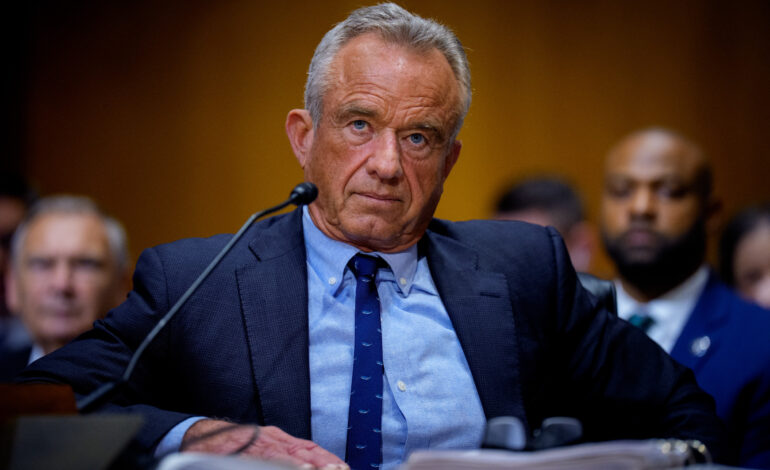Coverage Gap Emerges as Medicare Delays COVID-19 Vaccine Payments

The U.S. Food and Drug Administration (FDA) has recently approved the updated COVID-19 vaccine for all adults aged 65 and older. Despite this approval, many seniors are facing a significant issue: Medicare is not consistently covering the cost of the vaccine, leading some to pay out of pocket, as highlighted in a report by NBC News. This situation raises concerns for the approximately 68 million Americans enrolled in Medicare, a program many rely on for essential health care services.
The implications of this coverage gap are profound. For seniors with limited retirement savings, the inability to receive coverage for the vaccine can severely impact their financial stability and overall quality of life.
One such beneficiary, Allison Engel, a 74-year-old resident of Pasadena, California, shared her experience. After being informed by her local CVS that the vaccine would cost her $225 out of pocket, Engel received a rejection letter stating that the vaccine was not yet included in the Medicare system. “They typed everything in, and handed me a rejection letter,” she recounted. Rather than wait for two weeks, Engel opted to pay for the vaccine herself, hopeful that Medicare will reimburse her expenses.
In San Antonio, Texas, Brant Mittler, 78, echoed Engel’s frustrations. He noted that many Medicare patients were dissatisfied with the coverage issues they encountered at pharmacies. “The pharmacist tells my wife, ‘We’ve had Medicare patients coming in all day, and everybody’s upset because we can’t give it,'” Mittler explained. Fortunately, his experience improved when he learned that Medicare had updated its system, allowing him and his wife to receive their shots.
These patient experiences starkly contrast with the statements made by Robert F. Kennedy Jr., Secretary of Health and Human Services, during a Senate committee meeting. Kennedy Jr. stated that most Americans would have access to the COVID-19 vaccine at no cost through their pharmacies. “Anybody can get the booster,” he stated, asserting that accessibility would not be an issue for the majority.
The delay in coverage may be linked to the timing of the Centers for Disease Control and Prevention’s (CDC) Advisory Committee on Immunization Practices meeting, which is scheduled for September 18, 2023. Typically, Medicare is authorized to provide coverage for vaccines upon FDA approval, but the necessary updates to the system are still in process. CVS spokesperson Amy Thibault confirmed that “a few payers are still updating their systems and may not yet be set up to cover the updated COVID-19 vaccines.” She noted that pharmacy teams could assist patients in scheduling appointments for a later date.
Concerns regarding this coverage gap were also raised by health experts. Arthur Caplan, head of the division of medical ethics at NYU Langone Medical Center, emphasized that Medicare should be covering the vaccines, as confusion persists about eligibility. He noted, “Medicare should be covering the shots, but it isn’t clearing people. So again, this just stirs up uncertainty about, ‘OK, am I eligible? Am I in the risk group?’ People still aren’t sure.”
Financial implications are significant, particularly for those unable to afford the shot. Kevin Thompson, CEO of 9i Capital Group, remarked that the current situation forces some seniors to make risky decisions regarding their health. The vaccine is currently approved only for individuals aged 65 and above or those with serious health conditions, leaving others in a state of uncertainty until the CDC provides further guidance.
From a financial literacy perspective, Alex Beene from the University of Tennessee at Martin pointed out that many may find the lack of coverage unsurprising, given the shifting landscape of healthcare policies as the pandemic recedes. However, he stressed that COVID-19 remains a risk, particularly for vulnerable populations seeking additional protection.
If Medicare fails to address the coverage gap, the consequences could be serious. Beene warned that fewer seniors might receive the vaccine, which could lead to increased health risks. “The elimination of gap coverage could lead to fewer getting the shot and subsequently more health risks,” he stated. The financial burden of out-of-pocket costs may deter many from seeking the vaccine, creating a public health concern that could have broader implications.
As the situation develops, it remains to be seen how Medicare will respond to the current challenges and what measures will be taken to ensure that seniors can access essential vaccines without financial strain.






